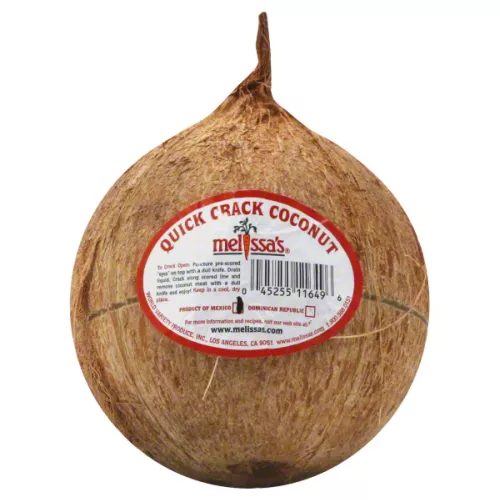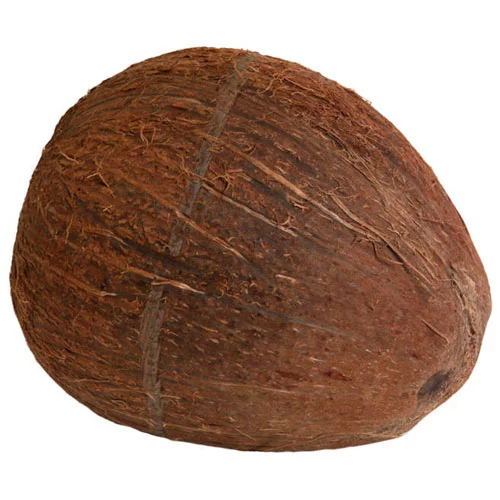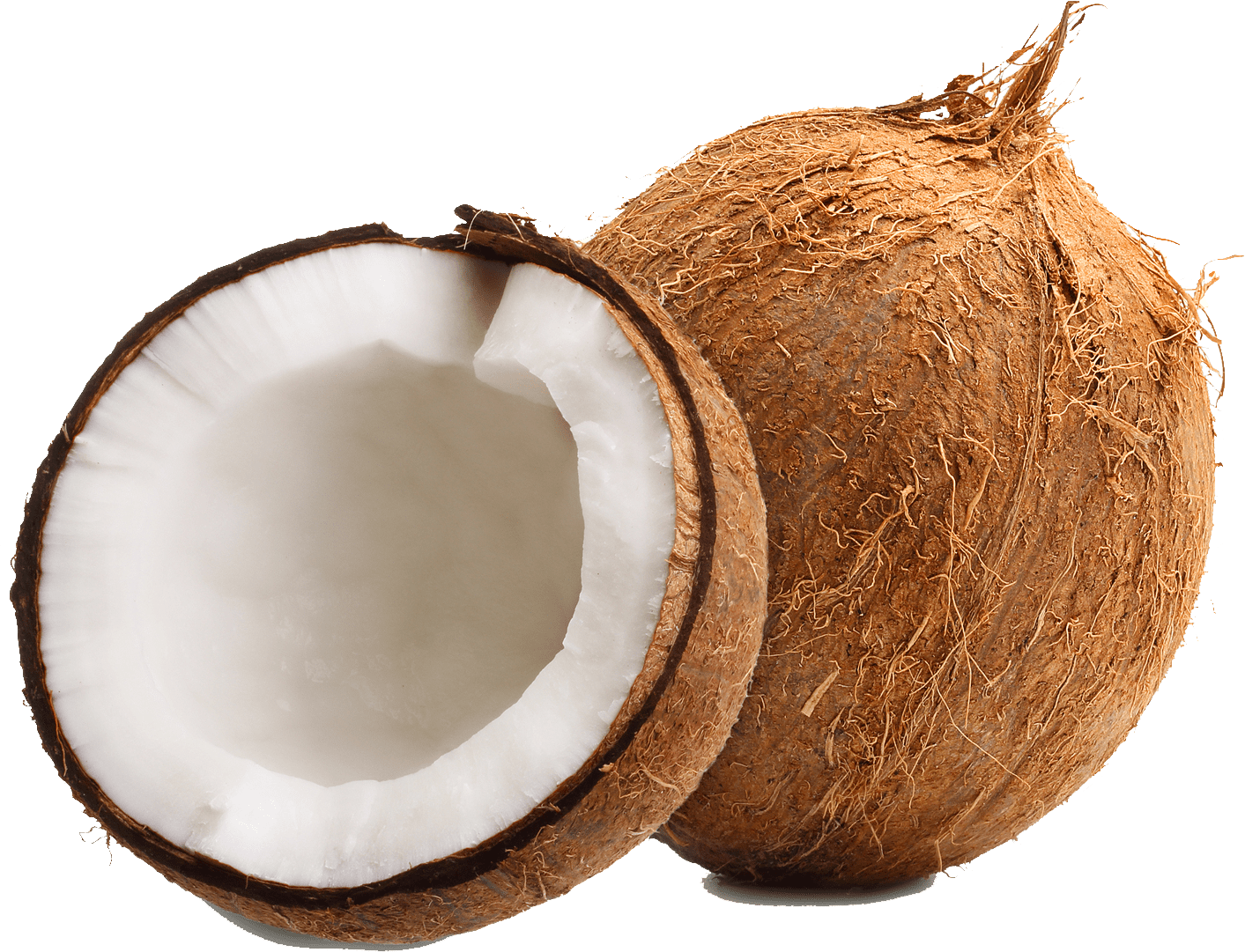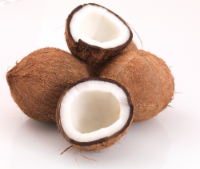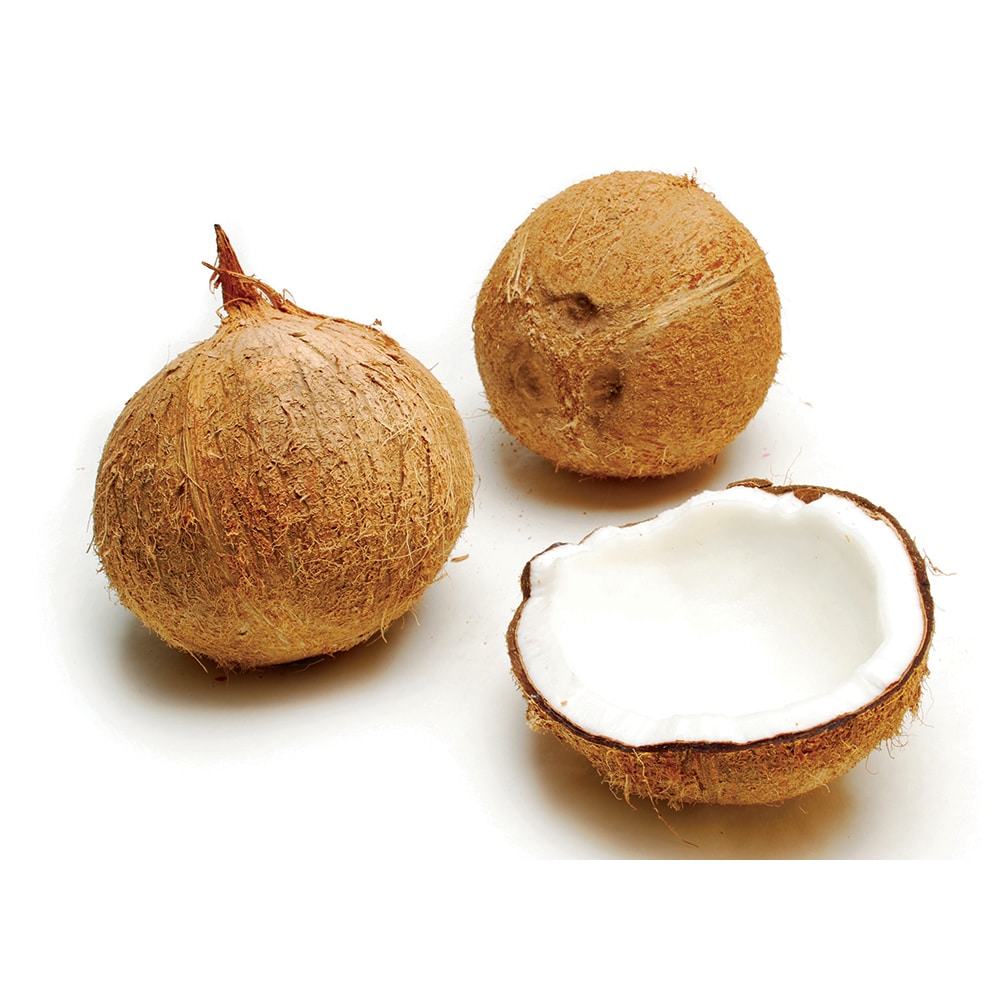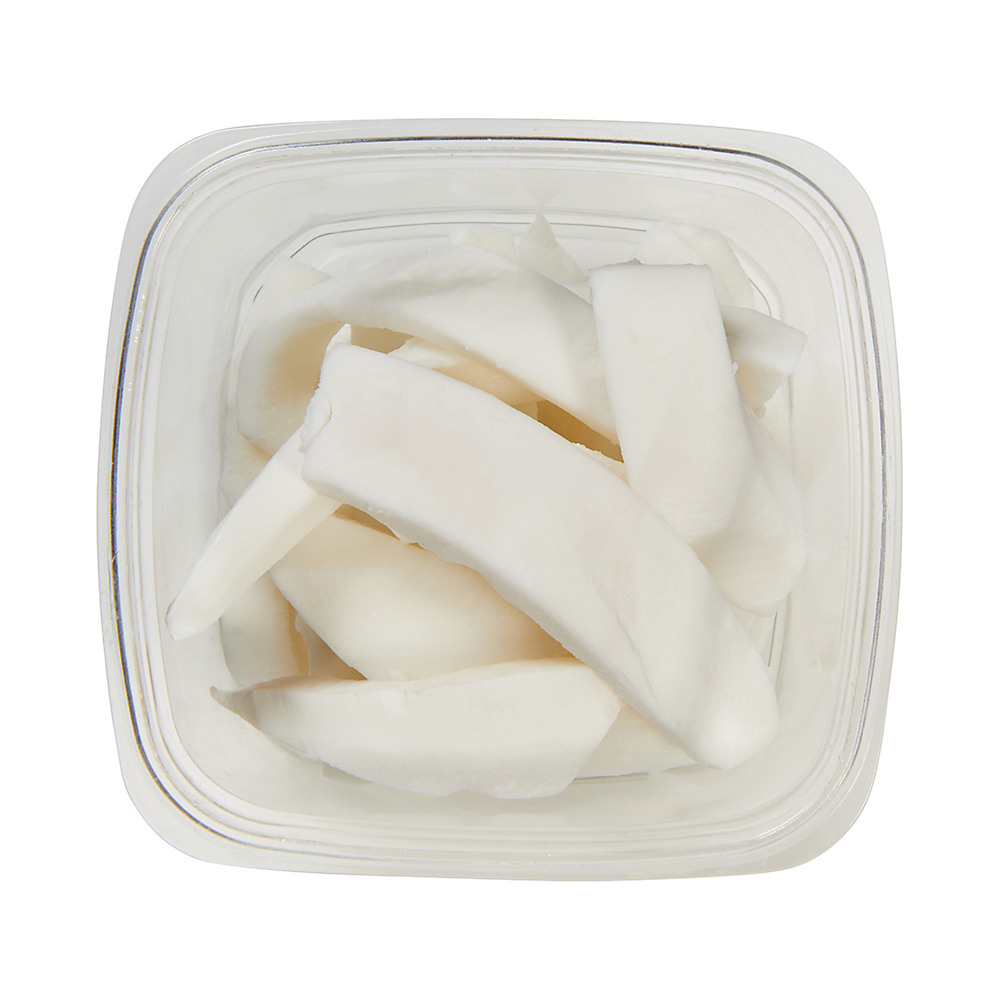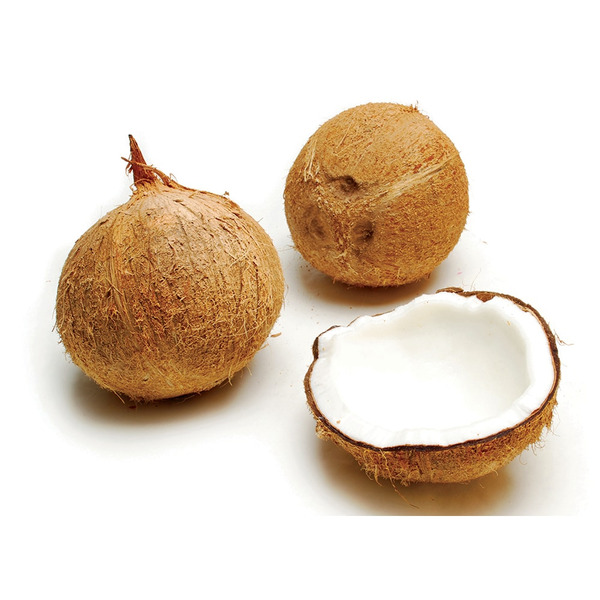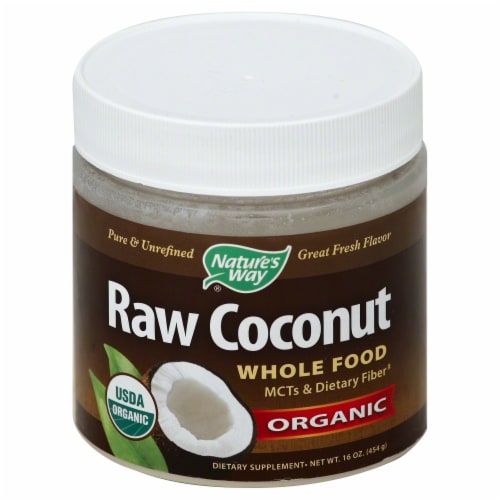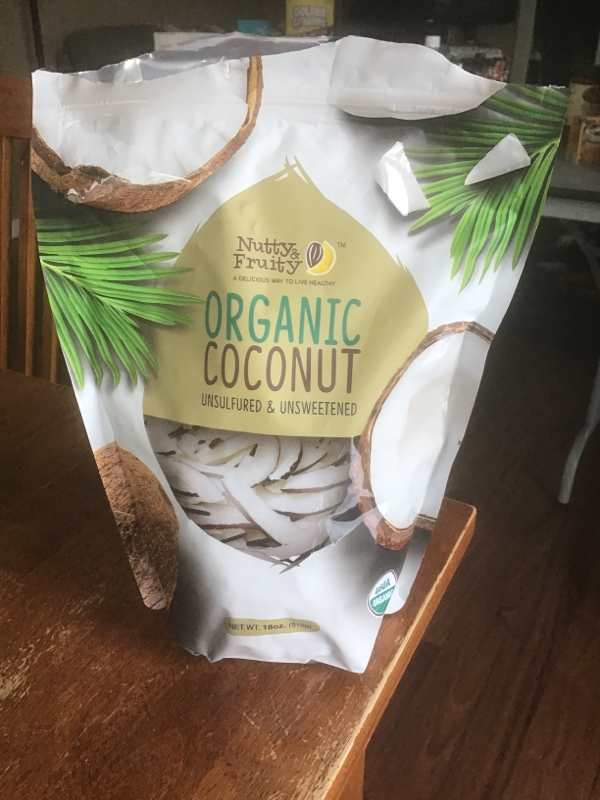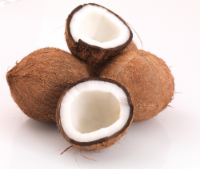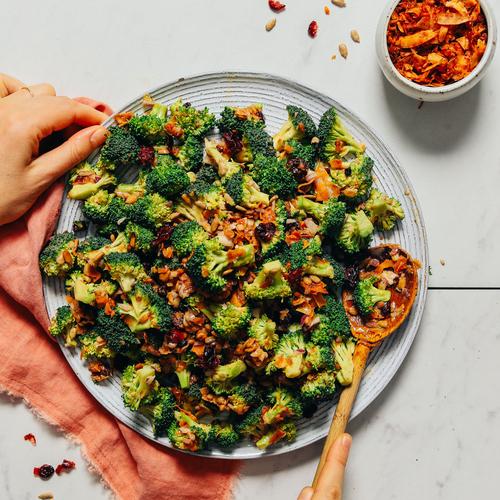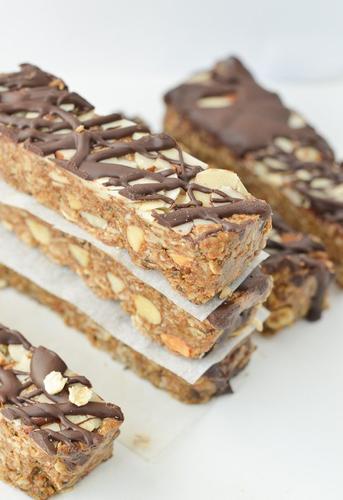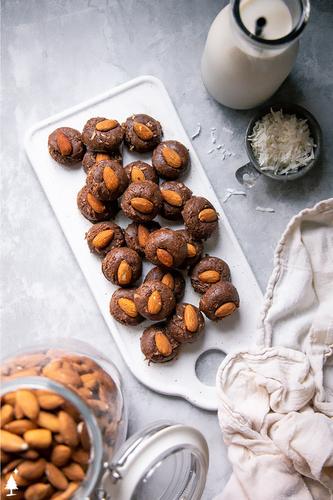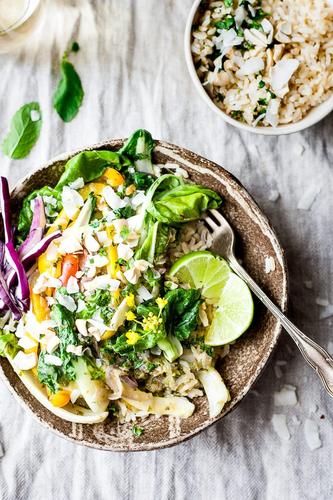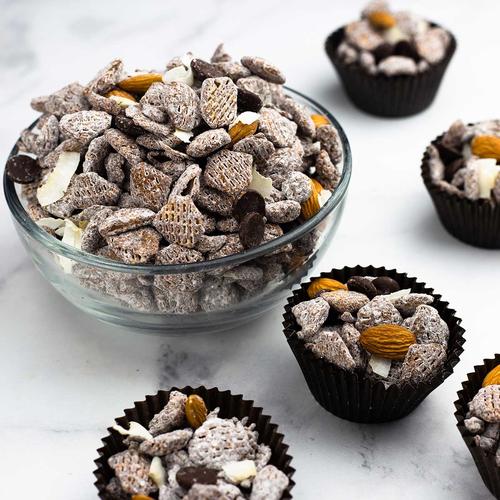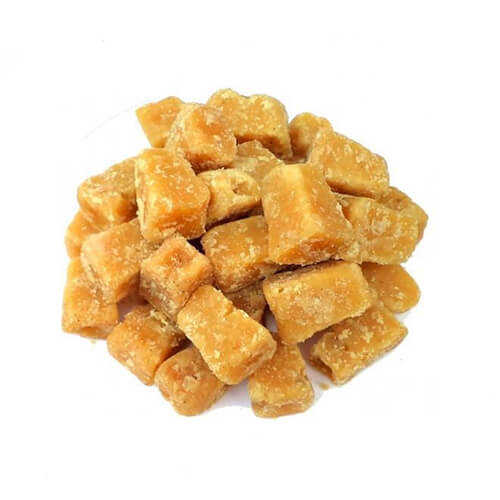DESSERTS
BREAKFAST AND BRUNCH
MAIN DISHES
Coconut
Coconut is a versatile and nutritious tropical fruit produced by the coconut palm tree (Cocos nucifera). Recognized by its distinct brown and fibrous shell, coconuts contain both white flesh (known as the coconut meat) and a clear, mildly sweet liquid called coconut water. Coconuts are ingested in various forms such as milk, oil, and flakes, and are frequently incorporated into both sweet and savory culinary dishes around the world.
Coconut has numerous health benefits, being rich in vitamins, minerals, and dietary fiber. Its well-recognized medium-chain fatty acids (MCFAs) present in coconut oil are said to have multiple positive effects, including boosting heart health and metabolism. Apart from culinary uses, coconuts are also popular in beauty and skincare products due to their moisturizing and replenishing properties.
29%
CARBS
64%
FAT
6%
PROTEIN
218 Coconut Products
Used In 24 Recipes
28
Creamy Vegan Broccoli Salad
7
Healthy no bake granola bars
6
Almond Joy Fat Bombs
1
Grape Salad
5
Vegetarian Thai Green Curry
1
Almond Joy Bliss Cereal Snack Mix
2
Curried Butternut Squash Noodle Soup
13
20 Minute Cashew Chicken Recipe {Paleo, Gluten-Free, Clean Eating, Dairy-Free}
Coconut Is Frequently Used With
Coconut FAQ
Cooking with coconut can initially seem a bit daunting due to the hard outer shell, but once you've successfully opened one, the possibilities are endless. People often wonder how to open a coconut, which is best done by piercing the 'eyes' at the top and draining out the water before carefully cracking it open with a hammer. Given its versatility, usage largely depends on the recipe at hand.
One common mistake people make is discarding the coconut water which can actually be used for cooking or as a nutritious drink. When cooking with coconut, whether it's in a curry or a cake, don't take shortcuts - the quality of coconut cream or milk can significantly impact the flavor of your dish.
Understanding the difference between coconut products is also crucial. Coconut milk and cream are made by blending and straining fresh grated coconut meat, while coconut water is the clear liquid found within the fruit. Coconut oil is extracted from the meat, and is used for both cooking and beauty purposes.
Here are some practical tips for getting the most out of your coconut:
- Grate the coconut meat using a standard box grater for fresh flakes.
- Blend the grated meat and strain to get fresh coconut milk.
- Use a spoon to scrape the meat out after cracking the shell open.
- Coconut oil can be a healthier substitute for other cooking oils and butter.
How to crack open a coconut?
How to make homemade coconut milk?
Can the coconut water be used?
What is the difference between coconut milk and coconut cream?
How to remove coconut meat?
Can I use coconut oil for frying?
How to make coconut oil at home?
What's the difference between virgin and extra-virgin coconut oil?
Where can I use coconut flakes?
Can I substitute coconut milk for regular milk in recipes?
Expiration & Storage Tips
When does coconut expire?
An unopened coconut can last approximately 1-2 months on the counter or up to 6 months in the refrigerator. Once opened, a fresh coconut can keep for 1 week in the refrigerator or can be frozen for 6-8 months. Shredded, unopened coconut (either fresh or dried) can be stored up to 6 months in the pantry, or a year in the fridge. Once opened, consume within 4-6 months when kept in the refrigerator. Coconut milk and coconut oil, unopened, usually remain good until the printed date on the package. Once opened, coconut milk should be kept in the fridge and used within 4-7 days, while coconut oil can last up to 2 years in the pantry due to its high saturated fat content.
How do you tell if coconut is bad?
For whole coconuts, spoiling can be judged by a rancid smell or a lack of water inside. The flesh of a bad coconut will have lost its firmness and appear discolored or dry. Puncturing one of the 'eyes' and sniffing can give you a good indication of whether it has spoiled or not. Opened fresh coconut should be discarded if it shows signs of mold or has an off smell. Dried or shredded coconut will smell rancid and may turn a yellowish color when spoiled. Coconut milk can curdle and develop a sour scent when it has turned bad, while coconut oil will have a stronger, unpleasant odor and may appear murkier than usual.
Tips for storing coconut to extend shelf life
• Always store whole coconuts in a cool, dry place
• Once a coconut is opened, wrap it tightly in plastic wrap or keep it in an airtight container in the refrigerator
• To extend the life of shredded coconut, store it in an airtight container in the fridge or the freezer
• Keep coconut milk and oil in a cool, dry place away from light and heat. Always seal the container tightly after each use
• Freezing is a great option for longer shelf life. Just crack the coconut open, remove the meat from the shell, cut into pieces, and freeze in an airtight container or a freezer-safe bag
EXPIRES WITHIN
3 - 6
WEEKS
Substitutes
Health Info
Macros
12g
CARBS
26g
FAT
2g
PROTEIN
Allowed on these diets
LOW FAT
HIGH CALCIUM
VEGETARIAN
KETO
PALEO
WHOLE 30
MEDITERRANEAN
LOW CARB
VEGAN
LACTOSE FREE
GLUTEN FREE

